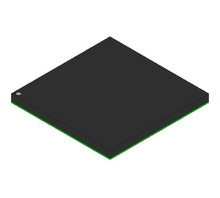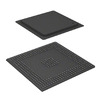Manufacturer Part Number
MPC563MVR56
Manufacturer
NXP Semiconductors
Introduction
The MPC563MVR56 is an embedded microcontroller designed by NXP Semiconductors, targeting automotive and industrial applications requiring a robust 32-bit processing core.
Product Features and Performance
PowerPC Core Processor, delivering 32-bit processing capability
56MHz clock speed for efficient operation
High-density 512KB FLASH memory for program storage
32KB RAM for data handling
Extensive connectivity options including CANbus, EBI/EMI, SCI, SPI, UART/USART
Advanced peripherals: Power-On Reset (POR), Pulse Width Modulation (PWM), Watchdog Timer (WDT)
Digital A/D Converter with 32 channels, 10-bit resolution
Operates across a wide temperature range from -40°C to 125°C
Product Advantages
Integrated PowerPC core provides high-efficiency computations
Significant memory capacity addresses complex programming needs
Versatile connectivity enables broad application suitability
Rugged design ensures reliability in harsh conditions
Key Technical Parameters
Core Size: 32-Bit Single-Core
Speed: 56MHz
Program Memory Size: 512KB
RAM Size: 32KB
Voltage Supply: 2.5V to 2.7V
Operating Temperature: -40°C to 125°C
Mounting Type: Surface Mount
Package: 388-PBGA
Quality and Safety Features
Engineered for rigorous automotive and industrial standards
Power-On Reset and Watchdog Timer enhance system reliability
Compatibility
Broad interface support ensures compatibility with a variety of peripherals and existing systems
Application Areas
Automotive control systems
Industrial automation
Embedded control applications
Product Lifecycle
Not For New Designs, indicating the presence of newer alternatives or impending discontinuation
Several Key Reasons to Choose This Product
Robust processing power with the PowerPC core suitable for complex computations
Large on-chip memory facilitates advanced program execution and data management
Extensive interface options provide versatility in application
Designed to operate reliably in extreme conditions, ensuring long-term deployment
Despite its status, it remains a viable choice for specific applications due to unmatched feature alignment



 MPC563MZP56 REVB
MPC563MZP56 REVB MPC563MZP66NXP USA Inc.IC MCU 32BIT 512KB FLASH 388BGA
MPC563MZP66NXP USA Inc.IC MCU 32BIT 512KB FLASH 388BGA